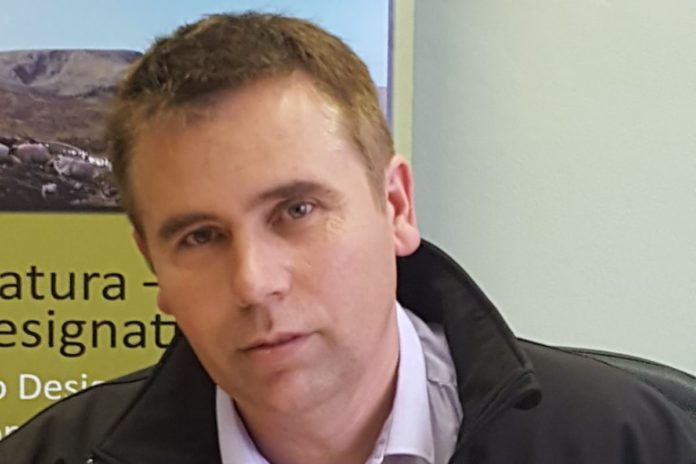Vincent Roddy has become the second-ever president to lead the Irish Natura & Hill Farmers’ Association.
The Ballaghaderreen, Co Roscommon native’s election was ratified at the organisation’s national AGM in Jackson’s Hotel, Ballybofey, Co Donegal last Thursday (September 30th).
Roddy is heading up a new team consisting of:
- Two new vice-presidents: Pheilim Molloy, Donegal and Micheal McDonnell, Mayo;
- National secretary: Sharon Cosgrove, Mayo;
- National treasurer: Hugh Gallagher, Sligo.
In his first address as national president, Roddy focused on:
- Current cap reform;
- Climate change;
- Ongoing issues confronting farmers with land designations.
CAP reform
Regarding CAP, he reiterated the organisation’s call for full flattening of Pillar 1 payments through 100% convergence and a front-loaded payment to help support smallholders.
“This recognises how these policies will not alone deliver in terms of equal payment for the same conditions but will also provide the best means of protecting the greatest number of farmers.”
On Pillar 2 payments, he called for an annual budget increase of at least €250m to deliver at least €850m.
“This is the minimum needed to deliver the required support for our suckler and sheep sectors while also providing an adequate budget to facilitate and support all farmers looking to join the new agri-environmental scheme.”
Suckler cows
He discussed climate change and specific proposals the Climate Change Advisory Council (CCAC) made to reduce the suckler herd “due to its lack of profitability.”
He queried their suitability in “pointing the finger of blame” at suckler cows.
“Their role should be to assess emissions and their impact based on science and not whether the sector was profitable or not.”
He asked the CCAC to revisit this and provide an updated view based entirely on science.
“If this is done, I am confident that the suckler sector, with its extensive farming systems, will no longer be viewed as an ongoing threat in the battle against climate change.”
Climate change and designated lands
Roddy commented on the issue of climate change and proposals around a just-transition.
He stated how there would be a cost to farmers as they aim to deliver on targets.
He said farmers will see the cost through the loss of agricultural output resulting in:
- Lower profits;
- Additional regulation;
- Also, additional labour costs.
“And how do we know this? Because farmers operating on our designated habitats, namely SACs and SPAs, have lived with these costs for the past 20 years.”
“Unfortunately, these farmers are still waiting for a just-transition as they struggle with the 39 notifiable actions that undermine their farming activity and profit.”
Furthermore, in a direct plea to Minister McConalogue, he stressed the need to address this issue.
Roddy is “hopeful” that the minister, who was present at the event, and government “can see the problem here”.
Concluding, Vincent Roddy pointed to these designated lands’ value to the Irish economy.
Based on the EU Nature Fitness Check, he said these lands are delivering €2.5 billion each year, translating into €3,000/ha.
“Unfortunately, for our farmers, the only payment available to them is €79ha. However, they have to join GLAS for this,” he concluded.





